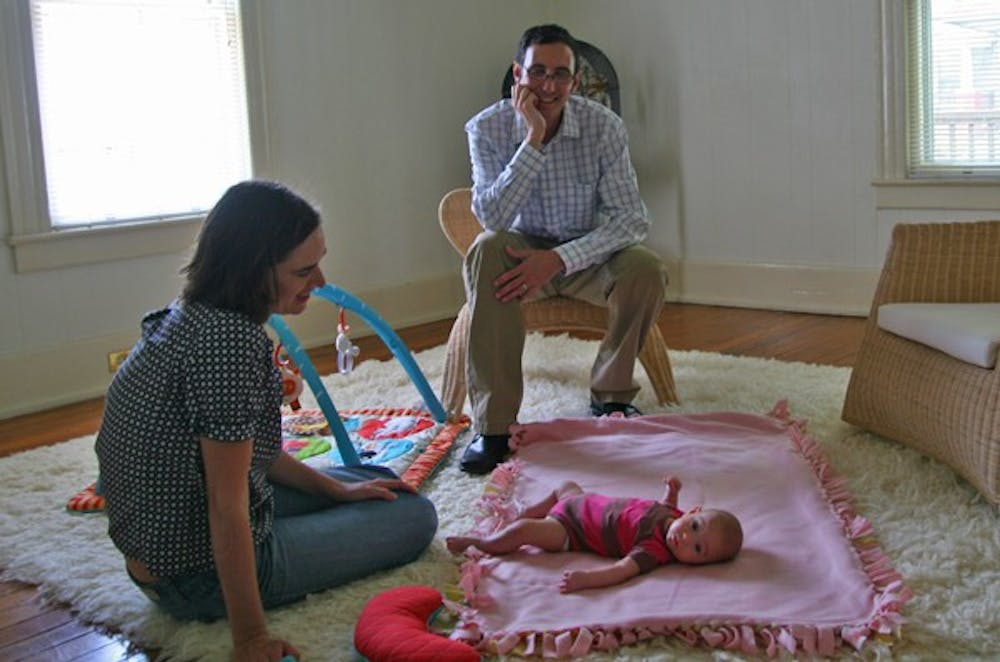Correction (July 6, 2010 12:01 p.m.): Due to reporting errors, an earlier version of this story incorrectly stated the last name of Tina Prevatte. The story has been changed to reflect this correction. The Daily Tar Heel apologizes for this error.
The phrase “baby daddy” is taking on a whole new meaning.
In recent years, more and more fathers have been taking time off from work to care for their newborns, both in the nation as a whole and at the University.
Gone are the days when the career-oriented dad whisked away to work and mom stayed home to take care of the newborn. Dads are playing an increased role in child-rearing, especially in the first year after birth.
Frances Campbell, a senior scientist at the Frank Porter Graham Child Development Institute, said this shift from gender-specific parenting responsibilities is a result of the feminist movement and more women entering the workforce.
“Both parents started having careers, so there was less time in the home. So fathers had to take on a larger role,” Campbell said.
UNC’s faculty-leave policy allows faculty, both male and female, 15 weeks or one semester off within a year of a birth or adoption.
The leave policy was adopted in 1997 to increase faculty recruitment and retention. The ability to provide more extensive leave options for parents would help attract faculty members to the school, said Joanna Cleveland, an associate university counsel at UNC.
While female faculty will take off from work immediately following the birth, dads will typically wait until the beginning of a semester to take paternity leave. Fathers, however, usually work reduced hours to help ensure a steady flow of income while the mother takes off work completely.



